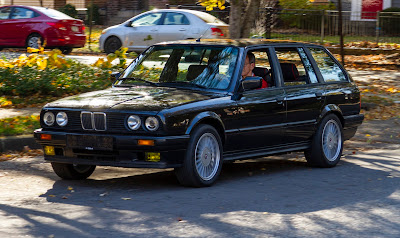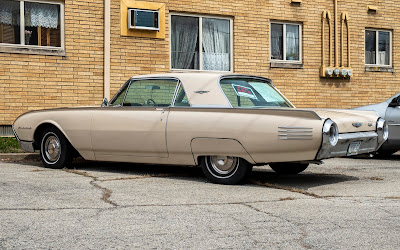Here's an interesting find: A first generation Cadillac Seville, perhaps a 1977.
This was the very first downsized Caddy, a response to the first fuel crisis and the Silent Generation hitting their peak earning years and leading edge of the Baby Boomers fixing to get into their thirties and start making real money. Its base DNA was derived from the Nova, and the final result was a Cadillac that was half a ton lighter & more than two feet shorter than the deVille and much nimbler and easier to navigate in tight quarters.
It featured the rear suspension from the previous generation ('68-'74') Nova and 11-in rear drums from the Nova police package, a 350 Olds Rocket V8 with Bosch/Bendix fuel injection (still a rarity back then) rated at 180 SAE net horsepower, and the first optional digital dash & trip computer in a Detroit car.
Road & Track managed a 13.3 second zero-to-sixty run and a 19.0 second quarter at 73 mph with a top speed of 105mph, which was pretty typical Malaise Era sedan performance in the days of the 55 mile per hour national maximum speed limit. It did circle a skidpad at 0.66g, which was downright racecar-like compared to the other supertankers in the Cadillac catalog.
With a base price of $12,479 (about $69,229 in current dollars), they actually stickered for more than any of the bigger Caddies on the lot at the time, except the limos. Cadillac marketed the Seville as "International Size Luxury", and they were intended to bring younger buyers back from Benz and BMW (a recurring theme with Caddy, seen again later in the Catera and CTS).
With a base price of $12,479 (about $69,229 in current dollars), they actually stickered for more than any of the bigger Caddies on the lot at the time, except the limos. Cadillac marketed the Seville as "International Size Luxury", and they were intended to bring younger buyers back from Benz and BMW (a recurring theme with Caddy, seen again later in the Catera and CTS).
This Sable Black one was photographed in December of 2019 using a Nikon D700 and a 24-120mm f/3.5-5.6 VR zoom lens.





















































